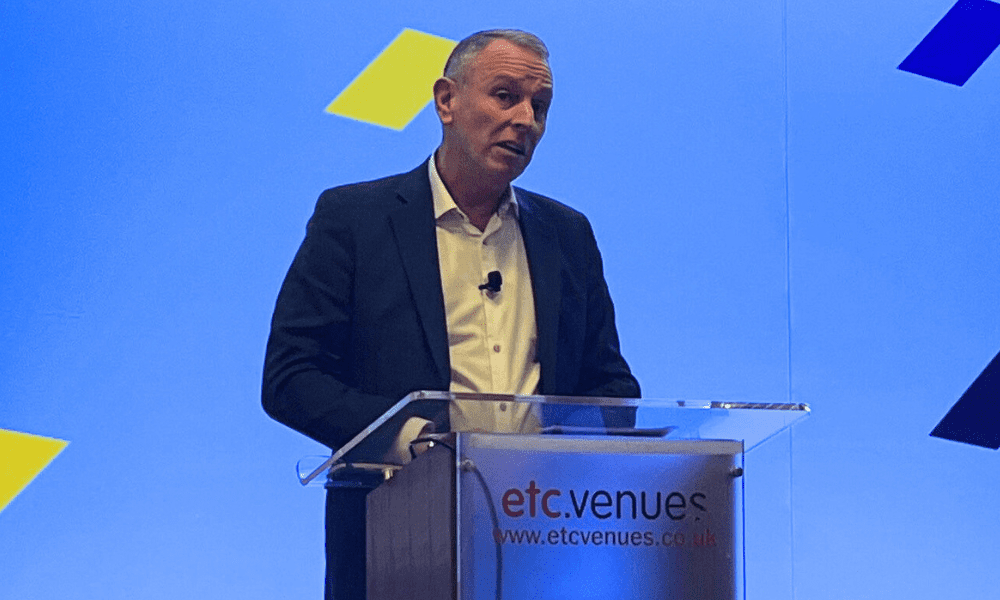‘Growing appetite’ to tackle insurance fraud, but challenges are evolving

‘Growing appetite’ to tackle insurance fraud, but challenges are evolving | Insurance Business America
Claims
‘Growing appetite’ to tackle insurance fraud, but challenges are evolving
Why insurance organizations should “think global, not local”
There is a growing appetite among insurers to tackle claims fraud more comprehensively. At the same time, fraudsters are ramping up their strategies and targeting markets beyond the US and UK, posing huge risks to insurers operating globally.
That’s according to Steve Crystal (pictured), head of claims fraud and investigation services, international at Sedgwick, who spoke to insurance leaders and anti-fraud professionals at last week’s Insurance Innovators Fraud & Claims summit in London.
“The rest of the world has noticeably been waking up to the risk posed by insurance fraud over the last five years,” Crystal said.
“There is definitely a growing appetite to tackle insurance fraud, not just by those insurers that operate internationally, but also by those insurers who operate only in the local markets.”
Claims fraud evolving as criminals find new targets
According to the Coalition Against Insurance Fraud (CAIF), insurers make around $308 billion in fraud claims payments annually in the US alone, making the country one of the biggest markets for fraudsters.
But Crystal noted that other fraud hotspots are emerging worldwide, such as South Africa and France.
Additionally, organized crime groups are targeting product lines beyond auto insurance. The emergence of embedded insurance has also given fraudsters a new avenue to target insurers.
Finally, Crystal named the rise of generative artificial intelligence (AI) as a potent threat. A notable case of claims fraud last year, for instance, stemmed from convincing fake boarding passes from a series of organized lost luggage claims between the US and the Dominican Republic costing around £1,500 ($1,900) each.
AI tools have made fraud easier and more accessible than ever, necessitating collective action from the industry, Crystal warned.
“I have seen some really good fake documents, photos and videos all around the world, incredible hologram foil strips on documents in real life,” said Crystal.
“But there is an opportunity to fight back against these challenges through global education, cooperation and disruption.”
“Think global, act local” – a strategy for tackling insurance fraud
Addressing insurance industry stakeholders, Crystal shared his strategy for helping new markets tackle fraud as insurers seek to protect their reputations, retain genuine customers, and plug revenue leaks.
“It’s advisable to be flexible [and] deliver a strategy that fits globally,” said Crystal.
He recommended a process centered on detection (spotting potentially fraudulent insurance claims from portfolios) and containment (triaging and investigating suspicious claims). Insurance organizations must be accountable at all steps.
Finally, Crystal stressed the importance of a “top-down culture” when it comes to eliminating claims fraud.
“It’s got to be lived and breathed from the very top. Let’s do the right thing,” he said. “Do provide colleagues who are new to this area with in-country support when it’s relevant to do so, especially around coaching.
“And in the market, build partnerships, make affiliations, and develop intelligence and explore technology.”
Crystal underscored the importance of collaboration and information-sharing in the war against fraud, advocating for a united front against organized crime networks.
He also highlighted the role of technology in enhancing fraud detection and prevention efforts, urging insurers to leverage innovative solutions to stay ahead of fraudsters.
“There were different challenges [affecting anti-fraud efforts], including legislation, regulation, data protection, market approach, policy wordings, culture, and language,” Crystal said.
“But my experience is that today, despite these challenges, there is a common denominator. Whatever your language, claims fraud is seen internationally as bad news, and I think that’s good news for our industry.
What are your thoughts on the claims fraud landscape? Feel free to share your comments below.
Related Stories
Keep up with the latest news and events
Join our mailing list, it’s free!






